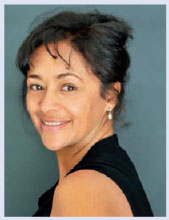Serviços Personalizados
Artigo
Indicadores
Links relacionados
-
 Citado por Google
Citado por Google -
 Similares em Google
Similares em Google
Compartilhar
SAMJ: South African Medical Journal
versão On-line ISSN 2078-5135
versão impressa ISSN 0256-9574
SAMJ, S. Afr. med. j. vol.104 no.8 Pretoria Ago. 2014
FORUM
MEDICINE AND THE LAW
Overturning refusal of a hospital to terminate life support for a brain-dead mother until the fetus was born: What is the law in South Africa?
D J McQuoid-Mason
Professor of Law at the Centre for Socio-Legal Studies, University of KwaZulu-Natal, Durban, South Africa, and publishes and teaches in medical law
ABSTRACT
In a Texas case the court granted a husband an order for the removal of life support from his brain-dead pregnant wife after a hospital tried to keep her on it until the fetus was born. In South Africa the court would have issued a similar order, but for different reasons. Here, unlawfully and intentionally subjecting a pregnant corpse to life-support measures to keep a fetus alive against the wishes of the family would amount to the crime of violating a corpse.
In a recent American case,[1] the court ordered a hospital to remove life support from a person's brain-dead pregnant wife, finding that the woman could not be regarded as a 'patient' because she was dead. Therefore, the Texas Health and Safety Code stating that 'life support' must be given to 'pregnant patients'[2] did not apply to her.[3] A South African court faced with the same situation would have issued a similar order for the removal of life support, but for different reasons, because there is no such Code here.
The Munoz case
Mrs Munoz was 14 weeks pregnant when a suspected pulmonary embolism left her brain dead. When the fetus was at 23 weeks' gestational age, Mr Munoz sued the hospital after the doctors told him that a Texas law forbade them to withdraw life support from his dead wife until the fetus's birth or a miscarriage occurred.[4] He asked the court to order the hospital to remove his wife from 'any respirators, ventilators or other "life support", and to release the body to her family for proper preservation and burial'.[5] He argued that the Texas Health and Safety Code[2] disallowing the withdrawal of life-sustaining treatment from pregnant patients did not apply to dead people or their fetuses, and that the hospital was treating his wife's body in a criminal manner and was violating her constitutional rights.[5] Mr Munoz did not mention that the fetus was 'distinctly abnormal',[4] because it was not relevant to the case.
The court only considered the first argument and held that the Texas Health and Safety Code[2] did not apply because Mrs Munoz was dead. It ordered the withdrawal of treatment and release of the body, and found it unnecessary to rule on any of the other grounds mentioned in the application.[3]
South Africa has no law similar to the Texas Code,[2] so such a ruling would not have been given if Mrs Munoz had died in this country. However, a similar result could have been achieved in South Africa, because of the criminal law protection afforded to deceased persons and the lack of legal status of a fetus in South African law.
The rights of the dead under the common law
According to the common law, a person's legal personality ends with death, and a dead person has neither rights nor obligations.[6] However, it protects corpses and regulates their disposal.[7] Dead persons may also preserve their wishes in a valid will in terms of the Wills Act,[8] or ask their next of kin to do certain things for them - even if the latter are not legally enforceable. If there is no will, the deceased person's next of kin (e.g. a spouse) could therefore request a hospital to maintain the corpse with life support until the child is born. However this only applies if such treatment will not be medically futile, as in the Munoz case where the fetus was 'distinctly abnormal'.[4]
In Canada, a Mrs Robyn Benson who had been declared brain dead when she was 22 weeks pregnant was treated with life support for 6 weeks to enable the child to be born, at her husband's request.[9]
Violation of a corpse
Although a dead person has no civil claim for interference with their personality rights such as their body, it is a crime to unlawfully and intentionally violate a corpse.[10] However, it would be a good defence if the alleged perpetrators genuinely believed that they had obtained the necessary consent to interfere with the body[10] (e.g. in terms of the National Health Act[11] or the Inquests Act[12]). Otherwise, unlawfully subjecting a corpse to intrusions by life-support mechanisms could be regarded as the crime of violating a corpse in South African law.[10]
Mr Munoz's lawyer stated that the fetus was 'gestating within a dead and deteriorating body, as a horrified family looks on in absolute anguish, distress and sadness'.[4] Had this case arisen in South Africa, the doctors and hospital would have been acting contrary to good morals (contra bonos mores) and unlawfully. The legal convictions of society would have been outraged[13] that the corpse of a pregnant dead woman, carrying a grossly defective fetus, was being subjected to life-support mechanisms against the wishes of her family.
In South Africa, the doctors and hospital would not be able to raise the defence that they mistakenly believed that they were bound to preserve the fetus by a statute like the Texas Code,[21] because there is no such law here. They would be guilty of the common-law crime of violating a corpse by subjecting her dead body to life support.[10]
The fetus and the law
South African law does not regard the fetus as a person, and it is not protected by the Constitution or the common law unless it is born alive.[14] It is not murder to destroy a viable fetus - it is abortion -because a fetus is not regarded as a human being.[15]
If the facts of Munoz case are applied to South Africa, no action could have been brought on behalf of the fetus. The death of a fetus is a natural consequence of its mother's death and the courts would not have interfered. The court would have ordered the hospital to withdraw the life-support treatment and to release Mrs Munoz's body to her husband.
Conclusions
Unlawfully and intentionally subjecting a dead pregnant woman to life-support measures to keep a fetus alive, where the deceased has not made a will to that effect and against the wishes of the family, may result in a criminal charge of a violating a corpse.
A pregnant deceased woman's body may be subjected to life support until the baby is born at the request of the next of kin (e.g. a spouse or partner) - provided that it is medically justifiable.
Doctors accused of violating a corpse by subjecting a pregnant deceased woman's body to life support may raise the defence that they genuinely believed that they had the necessary consent for their conduct.
1. Munoz v John Peter Smith Hospital, Tarrant County District Court, Texas, 24 January 2014 (unreported). Sapa-AP-AFP. Switch of my dead wife, plea. The Mercury 28 January 2014:5. [ Links ]
2. Section 166.049 of Texas Health and Safety Code, 1989. [ Links ]
3. Judgment. Munoz v John Peter Smith Hospital Cause No. 096270080-14 Tarrant County District Court 96th Judicial District Texas 24 January 2014 (unreported). http://thaddeuspope.com/images/MUNOZ_202053415-Judges-Order-on-Munoz-Matter.pdf (accessed 12 February 2012). [ Links ]
4. Lupkin S. Why Texas foetus might have had 'abnormalities' before mother was brain dead. World News. http://abcnews.go.com/Health/texas-fetus-abn (accessed 12 February 2012). [ Links ]
5. Janicek JH, Plaintiff's Attorney. Plaintiff's Motion to Compel Defendants to remove Marlise Munoz from 'Life Sustaining' Measures and Application for Unopposed Expedited Rule. Tarrant County District Court, Texas. 14 January 2014. http://www.scribd.com/199665794/munoz-versus-John-Peter-Smith-Hospital (accessed 12 February 2014). [ Links ]
6. Neethling J, Potgieter JM, Visser PJ. Law of Delict. 4th ed. Durban: LexisNexis Butterworth, 2001:259. [ Links ]
7. Christison A, Hoctor S. Criminalisation of the violation of a grave and of a dead body. Obiter 2008;28(1):23-43. [ Links ]
8. Section 2(1) of the Wills Act No. 7 of 1953. [ Links ]
9. Brain-dead woman gives birth to a healthy son, life support removed. http://www.all4women.co.za/news/brain-dead-woman-gives-birth-to-healthy-son-life-support-removed (accessed 24 March 2014). [ Links ]
10. S v Coetzee 1993 2 SACR 191 (T). [ Links ]
11. National Health Act No. 63 of 2003. [ Links ]
12. Inquests Act No. 58 of 1959. [ Links ]
13. Clarke v Hurst NO 1992 (4) 636 (D). [ Links ]
14. Christian Lawyers Association of South Africa v Minister of Health 1998 (4) SA 1113 (T). [ Links ]
15. Cf. S v Mshumpa 2008 1 SACR 126 (E). [ Links ]
 Correspondence:
Correspondence:
D J McQuoid-Mason
mcquoidm@ukzn.ac.za

Ahmad Haeri Mazanderani*† is a registrar in the Department of Medical Virology, Tshwane Academic Division of the National Health Laboratory Service and University of Pretoria. He is a member of the board of management of Child Welfare Tshwane and co-founder and director of the Good Start Foundation, a public benefit organisation assisting orphaned and vulnerable children. Ahmad’s research interests include HIV early infant diagnosis and HIV/ HTLV-1 co-infection. His interest in adoption medicine arose after meeting his daughter, Jamila, on a ward round. Since then Jamila has decided most things for him. As she grows into the most incredible little person, Ahmad hopes that other children in need of alternative care can be provided with the appropriate medical and social services necessary for a better future. Jamila hopes for the same.
* Haeri Mazanderani AF, Du Plessis NM, Lumb J, et al. Recommendations for the medical evaluation of children prior to adoption in South Africa. S Afr Med J 2014;104(8):544-549. [http://dx.doi.org/10.7196/SAMJ.7958]
† Haeri Mazanderani AF, Du Plessis NM, omas WN, et al. Loss of detectability and indeterminate results: Challenges facing HIV infant diagnosis in South Africa’s expanding ART programme. S Afr Med J 2014;104(8):574-577. [http://dx.doi.org/10.7196/SAMJ.8322]

Angela Mathee*† is director of the Medical Research Council’s Environment and Health Research Unit and of the World Health Organization (WHO) Collaborating Centre for Urban Health. She is a founding member of the Public Health Association of South Africa, and a member of WHO guidelines development groups for lead poisoning prevention and for housing and health. She holds a doctorate in public health from the University of the Witwatersrand for her work on lead exposure in South African children, and a master’s in environmental epidemiology and policy from the London School of Hygiene and Tropical Medicine. She is a Visiting Professor at the University of Johannesburg and an Associate Professor at the University of the Witwatersrand. Her key research interests are currently lead exposure in SA, urban environmental health and the health implications of extreme weather events.
* Mathee A, Naicker N, Kootbodien T, et al. A cross-sectional analytical study of geophagia practices and blood metal concentrations in pregnant women in Johannesburg, South Africa. S Afr Med J 2014;104(8):568-573. [http://dx.doi.org/10.7196/SAMJ.7466]
† Wright CY, Mathee A, Garland RM. Climate change, human health and the role of environmental health practitioners. S Afr Med J 2014;104(8):518-519.














